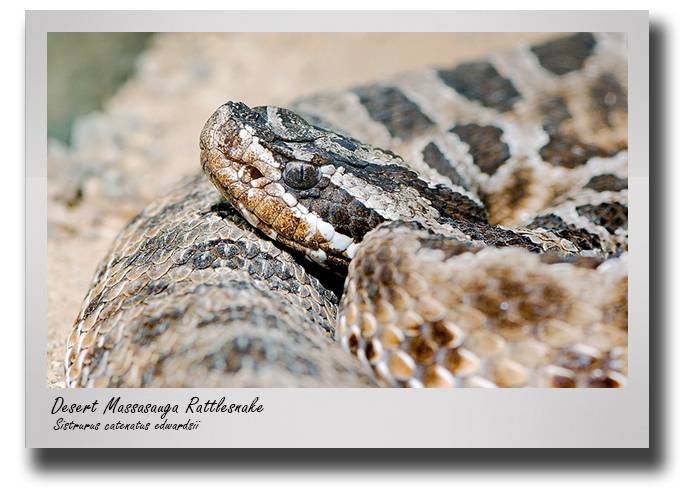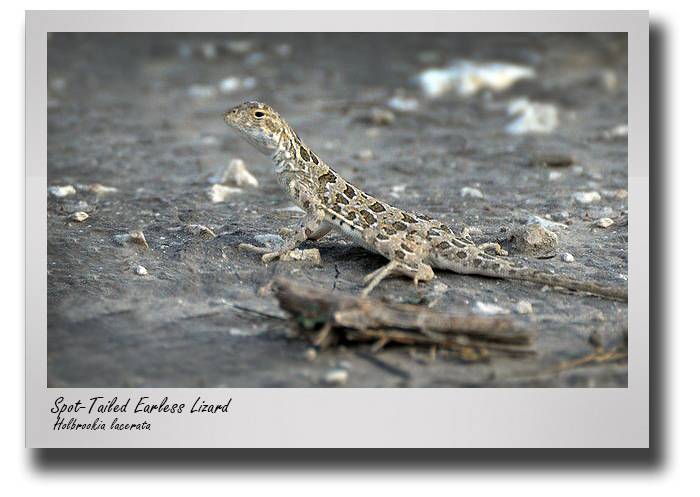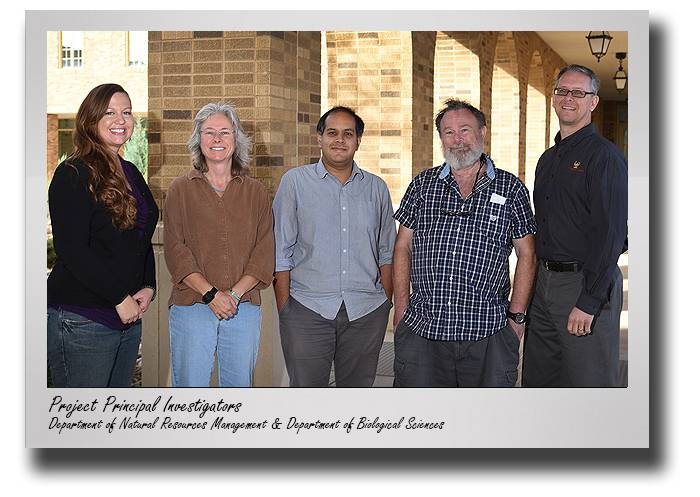Texas Tech team assesses grassland habitat change of two native Texas reptiles
By: Norman Martin
 A new Texas Tech University-led study of two native reptile species – the Desert massasauga
Rattlesnake and Spot-tailed earless lizard – could lead to better habitat management
decisions and potential future reintroduction efforts.
A new Texas Tech University-led study of two native reptile species – the Desert massasauga
Rattlesnake and Spot-tailed earless lizard – could lead to better habitat management
decisions and potential future reintroduction efforts.
Both species are considered as 'nearly threatened', and are currently under review for a change in status listing by the U.S. Fish and Wildlife Service. The reptile research project is supported by an approximately $870,000 grant from the Texas Comptroller of Public Accounts.
Tracking habitat change over time will allow determination of whether human activities are positively or negatively impacting these species, and may give insight into how the snake and lizard are using the habitat that they now have.
 "Every time a species declines in number, becomes rare on the landscape, and moves
toward extinction, the entire ecosystem is affected in some way," said study lead
investigator Samantha Kahl, an assistant professor with Tech's Department of Natural Resources Management. "Some
impacts are greater than others. The changes in the habitat of these two reptile species
over time can tell us a lot about changes in the ecosystem and the human impact on
the landscape."
"Every time a species declines in number, becomes rare on the landscape, and moves
toward extinction, the entire ecosystem is affected in some way," said study lead
investigator Samantha Kahl, an assistant professor with Tech's Department of Natural Resources Management. "Some
impacts are greater than others. The changes in the habitat of these two reptile species
over time can tell us a lot about changes in the ecosystem and the human impact on
the landscape."
In addition to Kahl, members of the research team from Tech's Department of Natural Resources Management include Carlos Portillo-Quintero, an assistant professor of geospatial information systems in natural resources, Robert Cox, an associate professor of habitat restoration ecology; Gad Perry, a professor of conservation biology; and Nancy McIntyre, a professor of landscape ecology from the Department of Biological Sciences. Mike Duran, a vertebrate zoologist and herpetologist with The Nature Conservancy in Corpus Christi, will also be assisting with the work.
 Today, the Desert massasauga and Spot-tailed earless lizard are experiencing declining
populations in West and South Texas grasslands as a result of habitat loss and fragmentation
stemming from landscape conversion. Both species are now largely confined to habitat
remnants and are therefore both of conservation concern. These remnant habitat patches
are likely to be affected by multiple stressors altering the habitat, including an
invasive bunchgrass, Buffelgrass, that physically reduce burrow and prey availability
and can impact freedom of movement across the landscape. Due to its potential impact,
density of Buffelgrass throughout the habitat area will also be assessed in this project.
Today, the Desert massasauga and Spot-tailed earless lizard are experiencing declining
populations in West and South Texas grasslands as a result of habitat loss and fragmentation
stemming from landscape conversion. Both species are now largely confined to habitat
remnants and are therefore both of conservation concern. These remnant habitat patches
are likely to be affected by multiple stressors altering the habitat, including an
invasive bunchgrass, Buffelgrass, that physically reduce burrow and prey availability
and can impact freedom of movement across the landscape. Due to its potential impact,
density of Buffelgrass throughout the habitat area will also be assessed in this project.
Over the course of the next three years, the researchers will be conducting extensive habitat mapping and fieldwork in order to assess the potential impacts of human development and habitat fragmentation throughout the reptiles' range over long and short time periods, attempting to assess previous decades as well as changes in the most recent years.
Although Texas has plenty of wide-open spaces, those spaces are becoming fragmented over time due to urbanization, fencing, new roads, and all forms of development, Kahl said. These factors can change, divide, reduce, and degrade native species habitat.
Any time a species is lost, the overall function of the ecosystem may be affected, Kahl said. For humans, that may mean not only seeing fewer species on the landscape, but indirect effects could include changes in species interactions, plant life, soil chemistry, water filtration, air quality, and the list goes on. "Essentially, as biodiversity decreases, ecosystem function may also decline," she said. "But this is something that we as humans may not see happening until the impacts are already irreversible."
CONTACT: Samantha Kahl, Assistant Professor, Department of Natural Resources Management, Texas Tech University at (806) 834-4041 or samantha.kahl@ttu.edu
0219NM19 / Editor's Note: A media folder with a high-resolution image and video can be found here
Davis College NewsCenter
-
Address
P.O. Box 42123, Lubbock, Texas 79409-2123, Dean's Office Location:Goddard Building, Room 108 -
Phone
(806)742-2808 -
Email
kris.allen@ttu.edu
